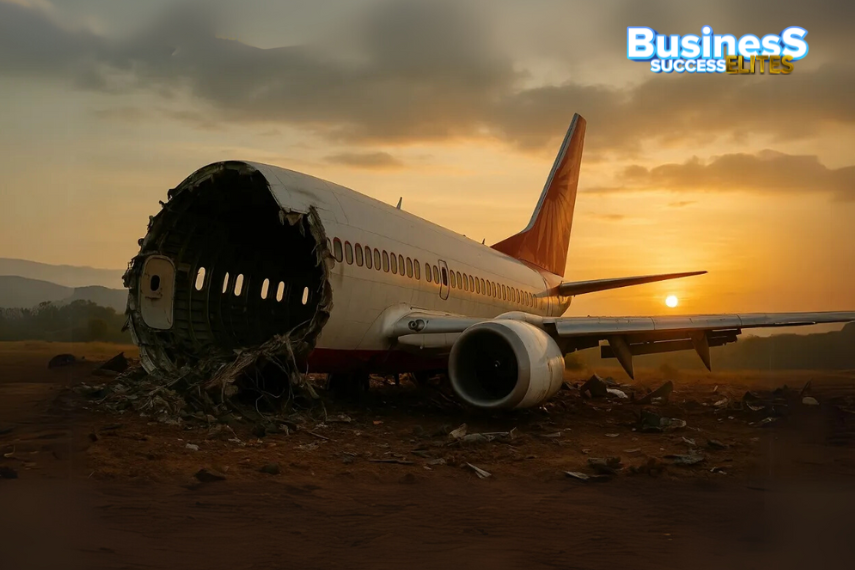
In one of the most tragic and financially significant aviation disasters in India’s history, an Air India Boeing 787-8 Dreamliner crashed shortly after takeoff from Ahmedabad International Airport on June 12, claiming over 240 lives and causing major ground-level destruction. The wide-body jet, en route to London, collided with a residential doctors’ hostel near the airport, resulting in further casualties and injuries on the ground.
Among the 242 passengers and crew on board, the majority were Indian citizens (169), followed by 53 British nationals, seven Portuguese citizens, and one Canadian. This horrific event has ignited a wide-ranging debate on aviation safety, corporate accountability, and the sufficiency of passenger compensation.
According to the Times of India, the total insurance claim filed amounts to ₹4,088 crore (approx. USD 475 million), making it one of the highest insurance claims ever recorded in Indian aviation history. The two major components of this claim include:
₹1,075 crore for the destroyed aircraft and engine.
₹3,014 crore for liability payouts—covering compensation for deceased passengers’ families, ground casualties, personal accident coverage, and travel insurance claims.
The aircraft, which had its engine replaced just months prior in April, was reportedly covered for ₹850 crore. General Insurance Corporation of India (GIC Re), the lead insurer, confirmed that the liability payout will far surpass asset damage, particularly with foreign nationals involved, as compensation must adhere to international legal standards.
Air India, owned by Tata Group, has announced an initial compensation of ₹25 lakh per deceased passenger, in addition to ₹1 crore previously pledged by Tata Sons to the families. Survivors will also be eligible for compensation.
“Air India stands in solidarity with the families of the passengers who tragically lost their lives. Our teams are doing everything possible to support those affected,” the airline said in a statement on X (formerly Twitter).
However, the airline has faced backlash online for CEO Campbell Wilson’s statement, which drew criticism for echoing language used in previous U.S. airline tragedies. This has sparked debate about crisis communication practices and authenticity during emergencies.
The devastating loss of life has led to a national reckoning on aviation safety practices in India. Many citizens have demanded accountability from Air India, aviation regulators, and maintenance oversight bodies.
The size of the insurance claim has also triggered intense scrutiny from the global insurance industry, with many experts suggesting that this incident could drive policy changes and re-evaluation of risk assessments for Indian airlines.
This tragedy has become a turning point for India’s aviation ecosystem—highlighting the urgent need for enhanced safety protocols, timely passenger compensation, and transparent crisis management. While investigations continue, both the airline and the nation face increasing pressure to ensure that such a disaster never happens again.
Also Read:
Donald Trump’s Tech Play: The T1 Smartphone and the Battle for American Consumers
UAE SMEs Maintain Confidence as RAKBANK Releases 2025 SME Confidence Index
Tesla Sees Sharp Sales Drop in 2025 as BYD Takes Global EV Lead
January 6, 2026Saurabh Dwivedi Begins a New Chapter After Lallantop
January 5, 2026